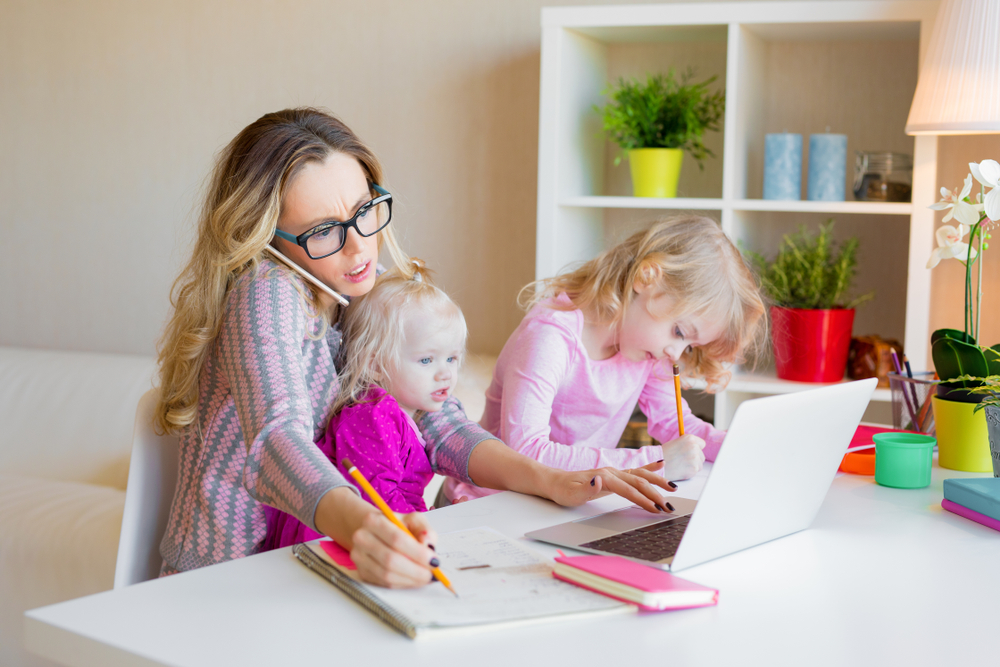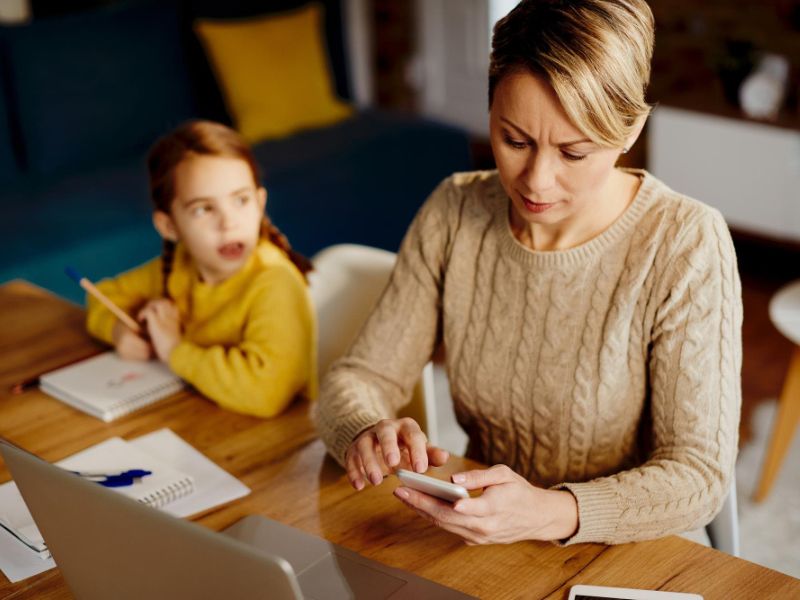Women in the UK are doing more childcare in lockdown – but men are more likely to say their caring or domestic responsibilities are negatively impacting their jobs, according to new research by King’s College London and Ipsos MORI.
The research found that, while women and men are equally likely to say their caring and domestic responsibilities have increased since lockdown, female parents say they spend seven hours in an average weekday on childcare, compared with five hours for male parents.
Despite this, 43 per cent of working fathers say their caring or domestic responsibilities are negatively impacting their ability to do their paid job by at least a fair amount, compared to 32 per cent of working mothers who say the same.
Overall, a quarter of all men in work, both parents and non-parents, said this was the case, compared with just 17 per cent of working women.
54 per cent of working women said their responsibilities under lockdown hadn’t impacted their paid work at all, compared with 43 per cent of working men. But there is little difference among working parents, with 31 per cent of mothers and 27 per cent of fathers saying there has been no impact.
Women are also more sceptical that the pandemic will lead to new ways of working – 49 per cent of women in work think their work patterns will not change when their workplace is fully open again, compated with 39 per cent of men.
Professor Rosie Campbell, Director of the Global Institute for Women’s Leadership at King’s College London, said, “Women have always done more childcare than men, and our survey reveals this is continuing under lockdown.”
“Despite the pandemic putting home and work lives under strain, fathers don’t appear to be helping out with the children more.”
“But they do seem to be getting a bigger shock from having to balance their caring and domestic responsibilities with new ways of working – which may reflect the fact they are simply less used to combining both types of work.”
“These findings also reveal that men and women have different concerns and responses to the uncertainties and disruptions we are currently facing, which to some extent reflects what we already know about the gendered division of labour and gendered patterns in mental health.”
“Taking an optimistic view, this unexpected disruption of roles could be a catalyst for a more equitable sharing of paid and unpaid work.”
“Less optimistically, women’s greater vulnerability to stress and anxiety may be linked to the heightened economic and social impacts many are experiencing as a result of this crisis, as revealed by other research.”
WeAreTheCity covers the latest female centric news stories from around the world, focusing on women in business, careers and current affairs. You can find all the latest gender news here.
Don’t forget, you can also follow us via our social media channels for the latest up-to-date gender news. Click to follow us on Twitter, Facebook, Instagram, and YouTube.









